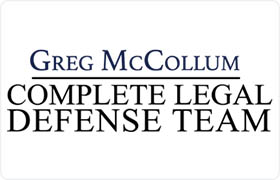Isle Of Palms White Collar Crime Lawyer, South Carolina
Sponsored Law Firm
-
 x
x

Click For More Info:
-
Greg McCollum Complete Legal Defense Team
1012 38th Avenue North Suite 202 Myrtle Beach, SC 29577» view mapCriminal Defence Law Complete Legal Defense Team
Our goal at the Complete Legal Defense Team is to examine the facts and circumstances completely and help our clients.
800-634-0690
John W. Molony
✓ VERIFIEDDUI-DWI, Domestic Violence & Neglect, , Firearms, White Collar Crime
Call Charleston criminal lawyer John W. Molony now if you have been arrested in Charleston, Mount Pleasant, North Charleston, James Island, Folly Beac... (more)
FREE CONSULTATION
CONTACTJerry N Theos
Litigation, Employee Rights, White Collar Crime, Personal Injury
Status: In Good Standing Licensed: 42 Years
Ben A. Hagood
Environmental Law Other, Complex Litigation, White Collar Crime, Mediation
Status: In Good Standing
J. Michael DeTreville
White Collar Crime, Wrongful Death, Divorce, Nursing Home, Premises Liability
Status: In Good Standing
Cameron Jane Blazer
Gaming & Alcohol, White Collar Crime, Slip & Fall Accident, DUI-DWI
Status: In Good Standing
Daniel Paul Ranaldo
White Collar Crime, Constitutional Law
Status: In Good Standing Licensed: 8 Years
A. Randolph Hough
White Collar Crime, DUI-DWI, Criminal, Constitutional Law, Antitrust
Status: In Good Standing Licensed: 32 Years
 Greg McCollum Myrtle Beach, SC
Greg McCollum Myrtle Beach, SC AboutGreg McCollum Complete Legal Defense Team
AboutGreg McCollum Complete Legal Defense Team Practice AreasExpertise
Practice AreasExpertise

